Best Violin Bridges 2023 Quality Brands and Effects on Sound
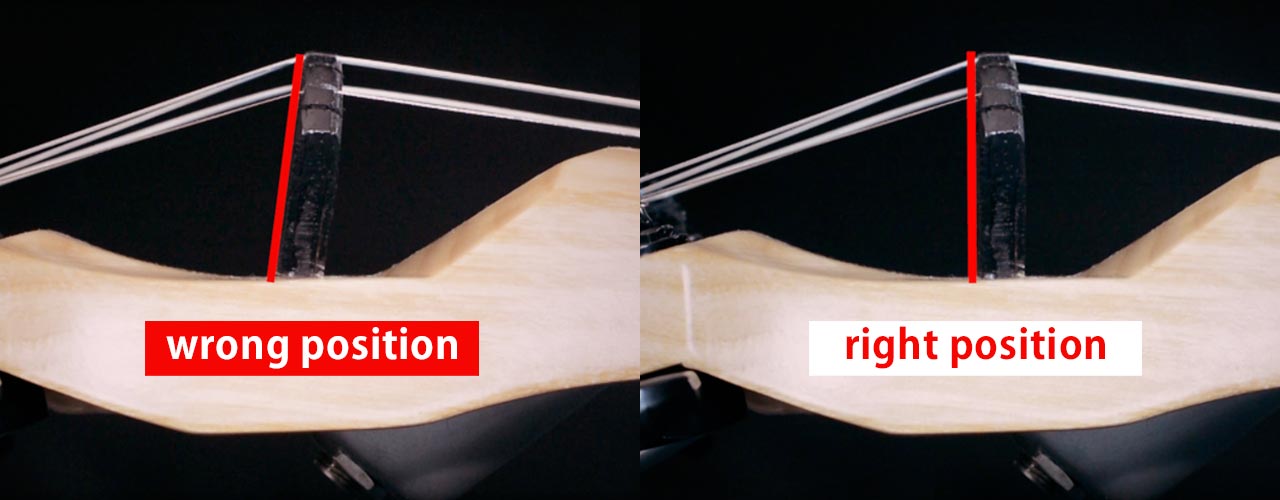
How To Straighten Your Violin Bridge? Straitening The Bridge
How to Position a Violin Bridge. Correctly! - YouTube © 2024 Google LLC Master Violin Maker Olaf Grawert talks about the best way to put up and position your violin bridge.

Violin/Viola Set Up A Guide to the Set Up Process Musical Instrument Hire Co
It is the luthier's job to do that. Strings should not be removed all at once because if the bridge falls off, it might not be glued back on, and your instrument might break. The soundpost is placed by the pressure of the strings on the table. That pressure slightly compresses the violin arch.

Violin/Viola Set Up A Guide to the Set Up Process Musical Instrument Hire Co
1 Identify the e-string and g-string side. A violin bridge is a small piece of wood. The bottom of the bridge is usually a straight line, while the top is arched slightly. When you're examining your bridge, you'll notice one side of the arch is slightly higher than the other.

How to position violin bridge YouTube
The correct angle of the bridge is achieved by having the tailpiece side of the bridge standing relatively perpendicular to the table of the violin. The feet of a properly cut bridge are fitted to match the contours of their locations on the belly.
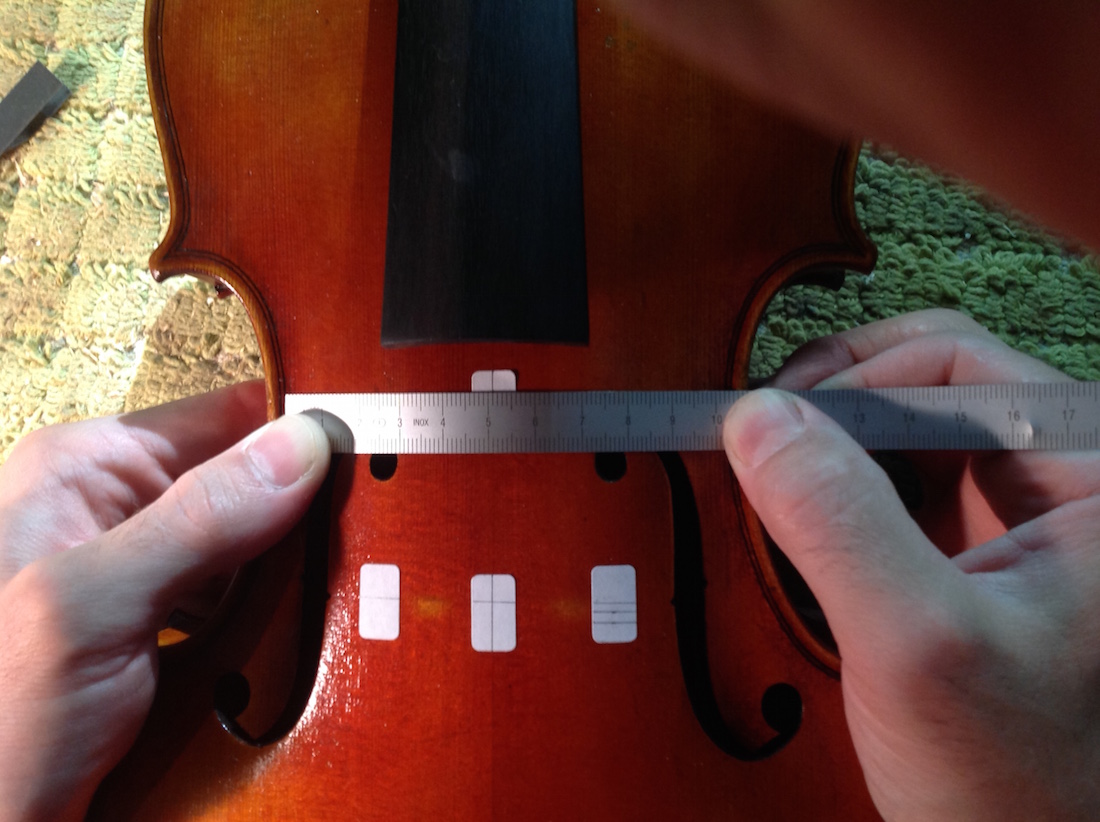
Carving A Violin Bridge Triangle Strings
The violin is easily the most popular bowed instrument. Small and portable, violins are easier to handle than other string instruments. Violinists also enjoy a wide range of opportunities, thanks to the violin's versatility across styles and genres! Our one-on-one lessons give students the direct instruction they need to master this elegant.
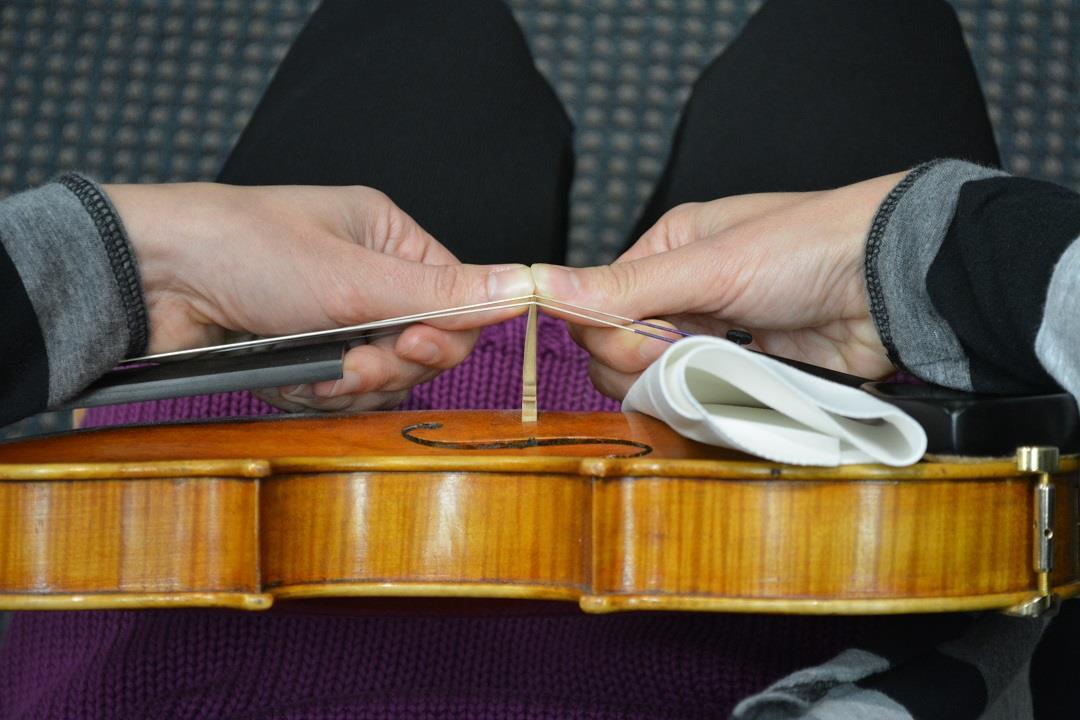
Ask the Experts how to correct a violin bridge position Premium Feature The Strad
Your bridge is straight if its back is almost at a right angle with the violin's top on the tailpiece side, and the very top of the bridge is fading slightly towards the fingerboard. If this is not the case, your bridge can be corrected with the following steps:

Parts of the Violin/Viola Musical Instrument Hire Co
A violin's bridge is a simple piece of maple wood with feet that sits on top of the violin. It's positioned several centimeters after the fingerboard ends, holding the strings above the fingerboard and guiding the strings to the tailpiece.
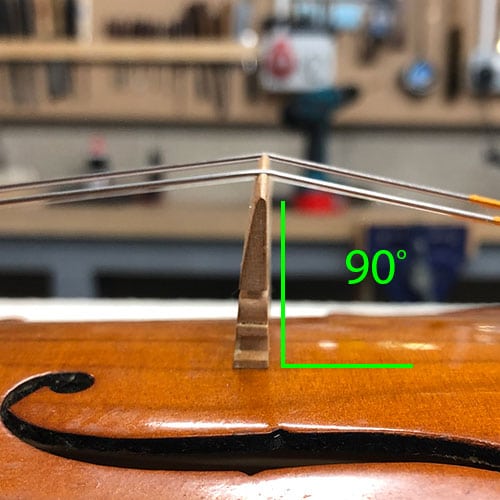
Your Hire Violin Getting Started Musical Instrument Hire Co
Fiddling Around? Violins Need Precise Bridge Locations The placement of the bridge on a stringed instrument is very important. If the bridge is too far forward, it will be difficult to play the instrument comfortably. If the bridge is too far back, the string height is too low and causes buzzing and muting.

How to fit a violin bridge YouTube
To place the bridge on a violin, make sure the upper part is towards the G string. Then, place it between the fingerboard and the tailpiece where there is a notch in the F-Holes. Measure to have the exact same distance between the F-Holes on each side. Lastly, make sure it forms a 90° angle with the table.

How to SETUP your VIOLIN BRIDGE YouTube
- Bridge The bridge The bridge, made of maple, serves the purpose of upholding the strings and transmitting the vibrations from the strings to the body of the violin. As such it must be both robust enough to withstand the pressure of the strings and light enough to transmit the vibrations freely.
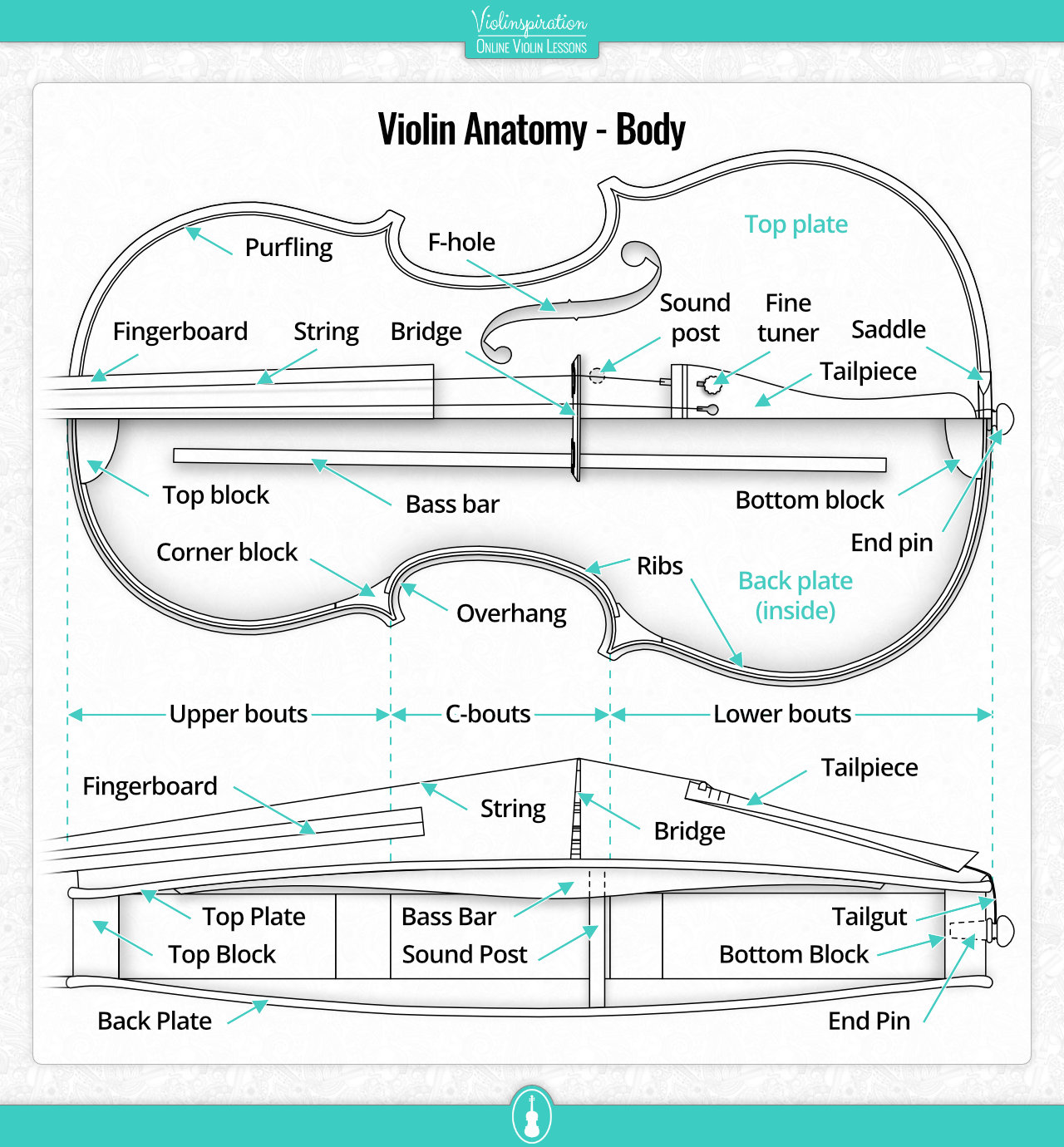
The Perfect Violin Bridge Position Q & A Violinspiration
Your violin bridge has to be strategically positioned on the body of your violin so that the foot on the G string side sits above your bass bar and on the E-string side sits closely above your sound post.

How to Set Up A Violin Bridge YouTube
The violin bridge must have a good curvature that carries the four violin strings at the right height for playing. It must also separate the four strings evenly so the violin can be played with ease. The thickness of the bridge do make a significant difference. The thicker the bridge, the more difficult it is for the bridge to transmit.
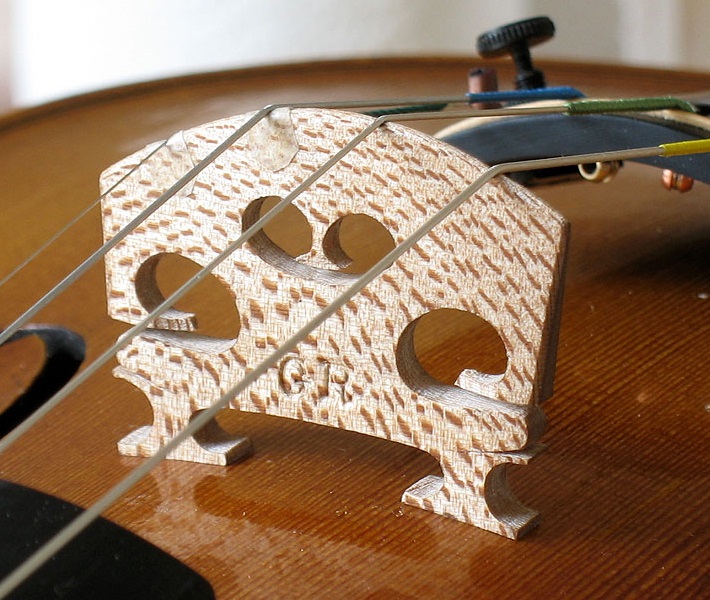
Best Violin Bridges 2023 Quality Brands and Effects on Sound
The violin bridge is completely and easily removable. This movability in the violin bridge is an essential characteristic. It would fail to provide that vibration transfer to the body of the instrument if it were glued or otherwise permanently affixed to the instrument.. Any kind of lean, any deviation from a 90-degree angle perspective.
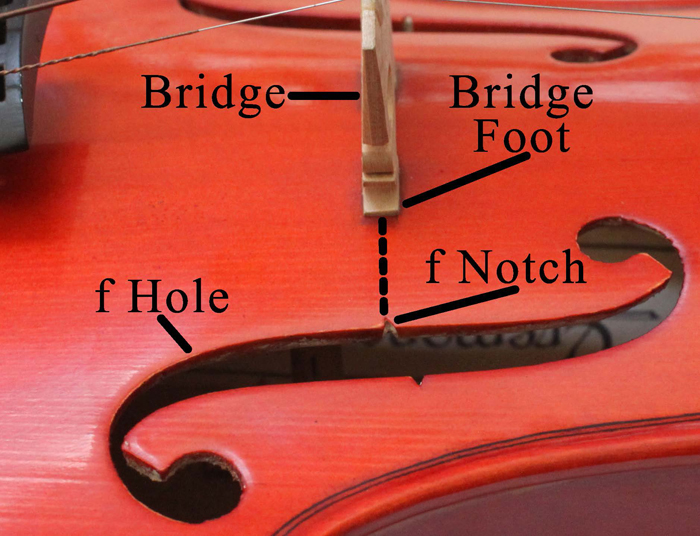
Position a Violin, Viola, Fiddle, Cello or Bass bridge
How to position a violin bridge and make sure it's standing up straight.
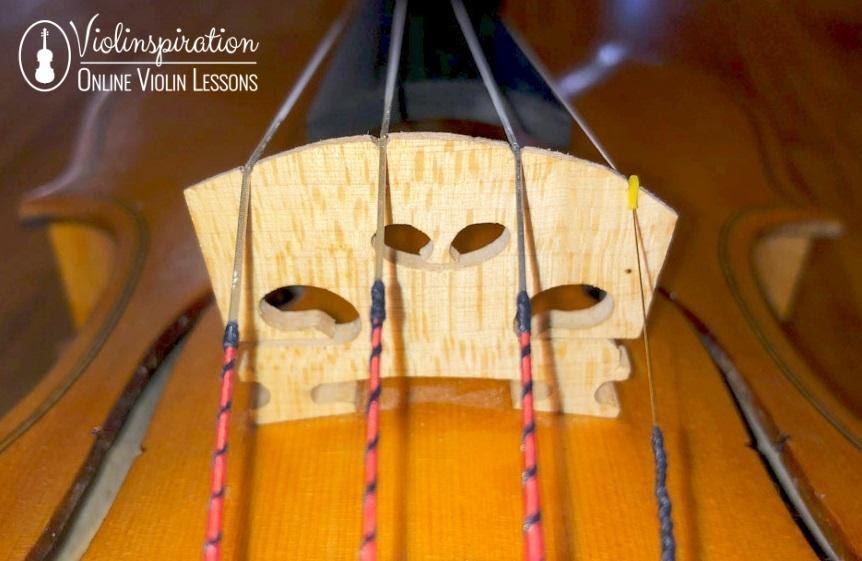
Violin Bridge Angle
Place your middle and ring fingers along the front and back of the bridge, using your index fingers to very gently move the bridge back to a 90 degree angle. If the bridge is too tight and will not budge, you can loosen one or two strings to provide more give. Do not loosen all of the strings as that will cause the bridge to fall over!

When a violin is played, the vibration of the strings puts the bridge under a lot of pressure
The violin bridge is a device designed both to support the strings and to transmit their vibrations to the body of the instrument. Made from maple wood, the shape of the bridge varies from one violin to another, and its placing and fit have a significant impact on the tone and playability of the instrument.